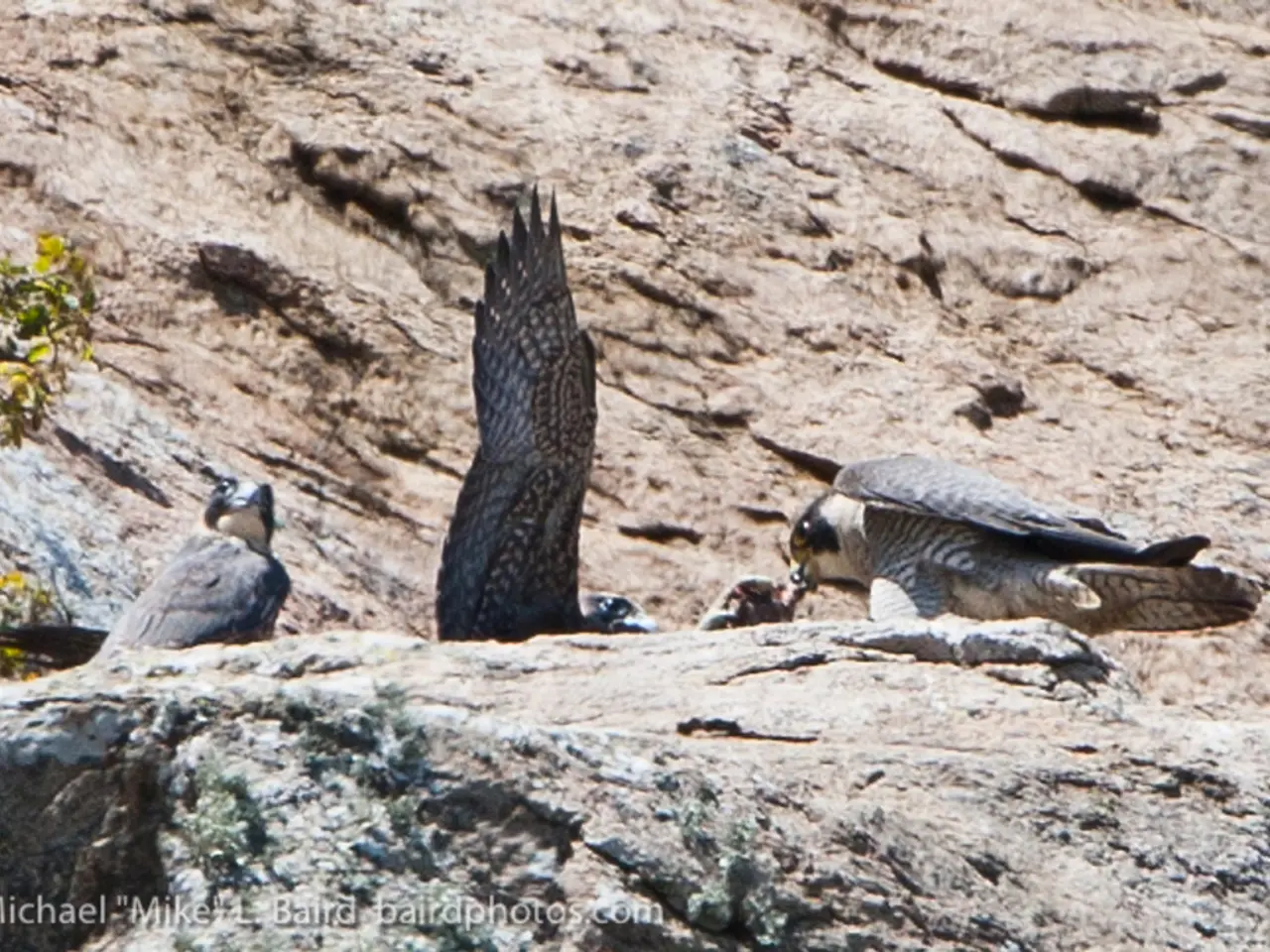Experiment on Oil Spill Cleanup: Research and Testing of New Methods
In a captivating classroom or home setting, children can gain a better understanding of the effects of an oil spill and the challenges in cleaning them up through a hands-on science experiment. This educational activity simulates an oil spill scenario, providing an engaging way for young minds to learn about the impact of pollution and the complexities of clean-up operations.
The experiment begins by adding vegetable oil to a basin of water, representing an oil spill in the ocean. Plastic pieces are added to the mix to symbolise pollution. Children are then given various tools such as sponges, cotton balls, paper towels, or nets to clean the oil and plastic. They observe which materials absorb or remove the oil most effectively.
The use of dish soap in the experiment demonstrates emulsification, a chemical process used by rescuers to clean oil from wildlife. Dish soap acts as an emulsifier, breaking oil into smaller droplets that can mix with water, making it easier to wash away. This aspect of the experiment mirrors real-world oil spill response techniques.
As the experiment progresses, children learn that sponges and cotton balls can absorb some oil but may be less effective for larger spills. They discover that paper towels absorb oil but can saturate quickly. The essential role of dish soap in breaking down oil into small droplets becomes apparent, enabling easier removal.
The experiment also offers an opportunity to discuss bioremediation, a natural process where oil-degrading bacteria break down oil in the environment. This aspect of the experiment highlights the intricate balance between human intervention and nature's own cleaning mechanisms.
This hands-on science experiment not only teaches kids about environmental science principles, but also introduces them to concepts in physics (absorption, buoyancy), and engineering design (problem-solving with available tools). The activity emphasises the complexity of real oil spill cleanups and the importance of prevention.
From the Gulf War Oil Spill in 1991, which impacted hundreds of miles of coastline in Kuwait and Saudi Arabia, to the largest accidental oil spill in history, the Deepwater Horizon Oil Spill in 2010, oil spills have had devastating consequences for marine wildlife and humans. The experiment serves as a reminder of the need for vigilance and swift action in the event of an oil spill.
[1] Science Buddies. (n.d.). Oil Spill Cleanup Experiment. Retrieved from https://www.sciencebuddies.org/science-fair-projects/project_ideas/Env_p036/oil-spill-cleanup-experiment [2] National Geographic Society. (n.d.). Oil Spills. Retrieved from https://www.nationalgeographic.org/encyclopedia/oil-spills/ [5] Science Buddies. (n.d.). Bioremediation Experiment. Retrieved from https://www.sciencebuddies.org/science-fair-projects/project_ideas/Env_p034/bioremediation-experiment
Read also:
- Overweight women undergoing IVF have a 47% higher chance of conceiving naturally post-weight loss
- Bonsai Trees from Evergreen Species: Exploring Growth Characteristics & Distinct Qualities
- What temperatures may make walking your canine companion uncomfortable?
- Latest advancements in ulcerative colitis treatments: An updated look






